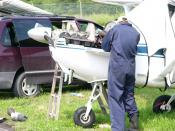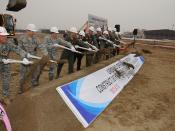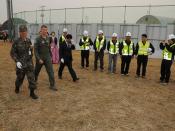There are millions of people flying on several aircraft every year, from small Cessna aircraft to the very large jumbo airliners, most of them thinking they're putting their life in the hand of the pilots. What they don't realize is that their lives along with the pilots are also put in the hands of the individuals behind the scene. Yes, we're talking about the maintenance crew that inspect, service, and perform routine and/or major maintenance of the aircraft. This paper touches on how human factors in aviation maintenance seriously affect the performance of an aircraft. For example, a pilot experienced a vibration while cruising at 8,000 feet; he shutdown the engine after noticing the oil pressure fall to zero, flames coming from the engine cowling, and smoke in the cockpit. The pilot miraculously makes a forced landing at a nearby airport. This accident was caused from an unserviceable piston assembly replaced during an annual inspection.
Time on duty, fatigue, and even personal problems are major factors in how well maintenance personnel perform their assigned duties. If there is one or more than 300 people aboard an aircraft, maintainers should realize that everyone is depending on their professional expertise to get them to their final destination safely. Statistics have shown that air travel is the safest mode of travel; unfortunately accidents will happen and poor maintenance practices can play a vital roll in a large number of them.
Working during the nighttime hours is better known as shift work. There is no getting around this shift. With the airline industry doing most of it's flying during the daytime hours, shift work is a requirement for a lot of maintenance personnel. This is where most of the aircraft maintenance is being performed and also when people are more prone to errors. When...


